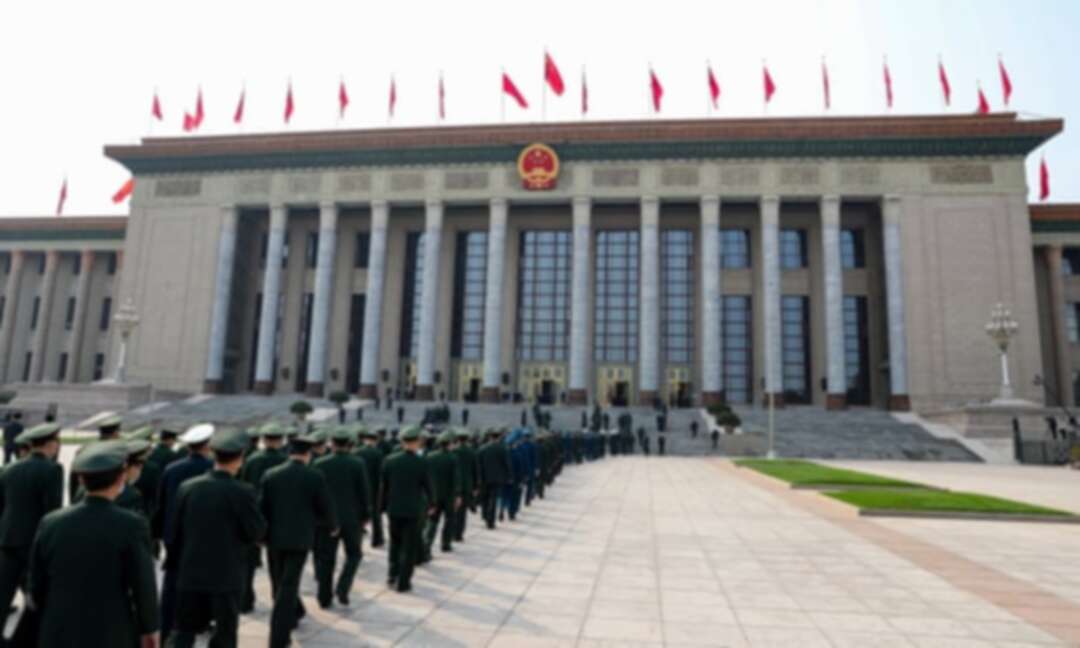-
China is major threat, but UK will keep up trade links, says defence review

Cold war with Beijing not feasible, says Raab, though it is seen as foremost state-based threat to BritainThe UK will maintain a positive trading and economic relationship with China while recognising Beijing represents the biggest state-based threat to the UK, the UK foreign and defence review will say.
The foreign secretary, Dominic Raab, said China was here to stay and pointed out no other country was taking the kind of strident economic measures against China that hawks were advocating. “It would not be feasible to go into some old, outdated, cold war with China,” he said
He said China was sensitive about its reputation, but admitted there was no firm evidence yet that it had been influenced by criticism from abroad, save at the margins. He insisted the UK was not seeking a free trade agreement with China any time soon, but that it was essential for the UK to cooperate with China on issues such as climate change, described in the review as the UK’s number one international priority.The balance in the approach to China, reflecting the Sinophile views of the prime minister, Boris Johnson, is likely to attract Tory backbench criticism, with a cross-party alliance on China claiming the strategy is “full of contradictions, dual standards and inconsistencies”. The parliamentarians claim the review’s call for closer trade and economic links is in direct contradiction to the report’s claim that China represents the biggest state-based threat to UK security.
The review’s authors insist the report is not one long apology for Brexit, but an attempt to site Britain as a nimble, agile problem-solving nation supporting open democracy and working closely with Nato, the US and aware of the continuing threat posed by Russia. “We will sit at the heart of a network of like-minded countries and flexible groupings, committed to protecting human rights and upholding global norms. Our influence will be amplified by stronger alliances and wider partnerships – none more valuable to British citizens than our relationship with the United States.”In a sign of the perceived growing threats, the review will lift the cap on the number of Trident nuclear warheads Britain can stockpile by more than 40%, reversing 30 years of gradual disarmament since the collapse of the Soviet Union. The lifting of the cap paves the way for a controversial £10bn rearmament, in response to perceived threats from Russia and China.
Asked why the UK might increase its warhead count, Raab said: “Because, over time as the circumstances change and the threats change, we need to maintain a minimum credible level of deterrent.
“Why? Because it is the ultimate guarantee, the ultimate insurance policy against the worst threat from hostile states.”
The review also warns of the “realistic possibility” that a terrorist group will “launch a successful CBRN
Campaigners warned the UK was at risk of starting a “new nuclear arms race” at a time when the world was trying to emerge from the Covid pandemic. Kate Hudson, the general secretary of the Campaign for Nuclear Disarmament (CND), said: “With the government strapped for cash, we don’t need grandiose, money-wasting spending on weapons of mass destruction.”
The review pledges to return to the commitment to spend 0.7 % of gross national income on overseas income, but sets no timetable for doing so. In interviews, Raab repeatedly avoided giving a commitment to hold a Commons vote on the cut, as some say he is legally obliged to do, saying only that ministers would not break the law or else they would be subject to judicial review. The pledge to return to 0.7% at a later date is not new, although it has been presented by Downing Street as a concession to rebels.
Overall the review mentions China 29 times, Russia just 14 times, North Korea eight times and Iran four.
Sir Alex Younger, the former head of MI6, said China represented a “generational threat”. He told BBC Radio 4’s Today programme: “There’s no doubt that China represents the generational threat and the reason for that is that the idea that China will become more like us as it gets richer or as its economy matured is clearly for the birds.
“That’s not going to happen. On the contrary I expect China’s Communist party to double down on its ideology in the future.
“There’s going to be an ideological divergence between us in the future, that’s going to generate rivalry and reduce trust.”
source: Patrick Wintour
Levant
You May Also Like
Popular Posts
Caricature
BENEFIT Sponsors BuildHer...
- April 23, 2025
BENEFIT, the Kingdom’s innovator and leading company in Fintech and electronic financial transactions service, has sponsored the BuildHer CityHack 2025 Hackathon, a two-day event spearheaded by the College of Engineering and Technology at the Royal University for Women (RUW).
Aimed at secondary school students, the event brought together a distinguished group of academic professionals and technology experts to mentor and inspire young participants.
More than 100 high school students from across the Kingdom of Bahrain took part in the hackathon, which featured an intensive programme of training workshops and hands-on sessions. These activities were tailored to enhance participants’ critical thinking, collaborative problem-solving, and team-building capabilities, while also encouraging the development of practical and sustainable solutions to contemporary challenges using modern technological tools.
BENEFIT’s Chief Executive Mr. Abdulwahed AlJanahi, commented: “Our support for this educational hackathon reflects our long-term strategic vision to nurture the talents of emerging national youth and empower the next generation of accomplished female leaders in technology. By fostering creativity and innovation, we aim to contribute meaningfully to Bahrain’s comprehensive development goals and align with the aspirations outlined in the Kingdom’s Vision 2030—an ambition in which BENEFIT plays a central role.”
Professor Riyadh Yousif Hamzah, President of the Royal University for Women, commented: “This initiative reflects our commitment to advancing women in STEM fields. We're cultivating a generation of creative, solution-driven female leaders who will drive national development. Our partnership with BENEFIT exemplifies the powerful synergy between academia and private sector in supporting educational innovation.”
Hanan Abdulla Hasan, Senior Manager, PR & Communication at BENEFIT, said: “We are honoured to collaborate with RUW in supporting this remarkable technology-focused event. It highlights our commitment to social responsibility, and our ongoing efforts to enhance the digital and innovation capabilities of young Bahraini women and foster their ability to harness technological tools in the service of a smarter, more sustainable future.”
For his part, Dr. Humam ElAgha, Acting Dean of the College of Engineering and Technology at the University, said: “BuildHer CityHack 2025 embodies our hands-on approach to education. By tackling real-world problems through creative thinking and sustainable solutions, we're preparing women to thrive in the knowledge economy – a cornerstone of the University's vision.”
opinion
Report
ads
Newsletter
Subscribe to our mailing list to get the new updates!






















